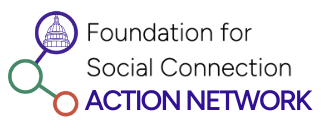A 74-year-old Vietnam era Veteran was labeled a “frequent flyer” by staff at his local Veterans Affairs (VA) Urgent Care Center (UCC). Frequent flyer is not a technical term – it refers to patients who visit Urgent Cares often over a short period of time. This veteran came in with vague health complaints. Each time the urgent care staff did a thorough assessment with him, but they couldn’t find any physical medical problems.
It was during his third visit that he admitted that he sometimes comes into the UCC just to talk with the nice VA staff. He mentioned that he lives alone and often goes weeks without talking to anyone. While this is essentially harmless, it does divert time and energy of overworked staff from legitimate medical emergencies. The nurse was concerned that he was depressed and may need an anti-depressant or referral to therapy, so she asked a social worker to speak with him. The social worker did depression and suicide screenings, both were negative. She assessed for other psychosocial issues such as transportation or self-care problems; he denied any difficulty.
However, one issue was clear – he was lonely. This social worker knew that chronic loneliness could lead to increased risk for clinical issues such as depression, memory changes, heart issues, even suicidal thoughts and substance use. She also knew that social prescriptions could improve social determinants of health and therefore reduce clinical risk.
What is a social prescription? It’s described as using links within a healthcare system to better engage with patients who are at risk for loneliness. It addresses a variety of social determinants of health measures by increasing a patient’s social connectedness to improve their overall well-being.
The social worker gave this Veteran a social prescription to VA’s Compassionate Contact Corps program. This program has a trained VA volunteer call a Veteran each week to provide friendly conversation and companionship. They are matched based on mutual interests; the same volunteer calls each week. A friendship tends to develop over time. Studies have shown that social prescriptions can reduce unnecessary trips to emergency rooms or an urgent care. Our internal surveys have shown that Compassionate Contact Corps has helped US Veterans feel less lonely, improved their overall well-being, and even makes them feel like the VA cares about their overall well-being (which we do!).
It’s not just urgent care. UK general practitioners estimated that up to 20% of their time was spent discussing non-medical issues with patients – essentially providing socialization. Again, time better spent with other patients experiencing medical issues.
For decades, healthcare has talked about the connection between social determinants of health and clinical risk. Clinicians recognize that an individual’s social connectedness and environment have an impact on utilization, disease, and outcomes. However, healthcare has relied on community services to provide the social programming – unfortunately, too often patients fall through the cracks.
Social prescribing offers clinicians a way to connect Veterans with programs that address many of these social determinants of health. Social prescribing supports healthcare systems in developing their own internal programs in addition to forming external partnerships with community services. At VA, we’ve partnered with Veteran service organizations like the American Red Cross, American Legion Auxiliary, Blue Star Mothers of America, and Soldiers Angels.
A few months after that Veteran was referred to the VA’s Compassionate Contact Corps social prescription program, VA staff followed up with him to see how he was feeling. He said the weekly phone calls were the bright spot in his week. He and his volunteer have become fast friends, and he even finds himself with more energy throughout the week. He shared that he recently got back into reading biographies, something he and his volunteer both enjoy.
VA is at the forefront of healthcare systems implementing programs to address loneliness and social determinants of health. We are educating Veterans – and clinicians – about how loneliness impacts health. We are reducing the stigma surrounding loneliness and we are offering a prescription to help. This can not only improve well-being, but also reduce unnecessary prescriptions, referrals, and healthcare costs. Patients want this, and healthcare systems would be wise to pay attention.
Of course, loneliness is universal. This is not just an issue for Veterans. Healthcare systems across the US such as hospitals, outpatient clinics, and healthcare policymakers are faced with the same issue; how can healthcare reduce loneliness and the associated clinical risks? Social prescribing is the solution, and the way forward for a healthier and better-connected country.

